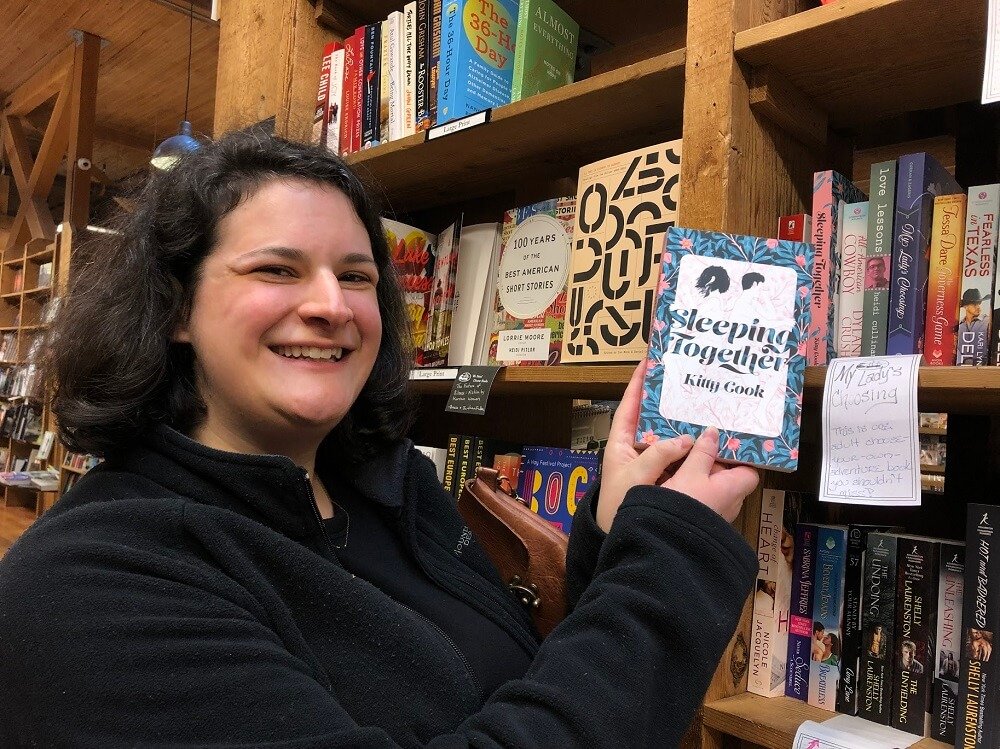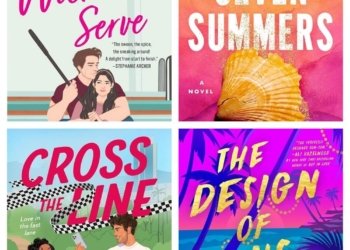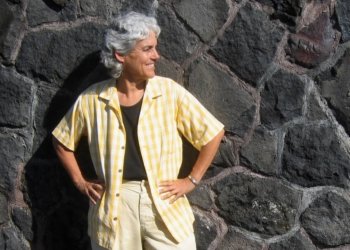No products in the cart.
A Conversation with Kitty Cook, a Science Fiction Romance Author
Kitty Cook's first novel, Sleeping Together, won a 2019 Silver IPPY for best first book and a 2019 IndieReader Discovery Award for best romance.
1.7k
SHARES42.7k
VIEWSKitty Cook is a book chef based out of Seattle, specializing in salty heroines, spicy plot lines, and semisweet endings that hit the spot. With two energetic kids and a very patient husband, Kitty spends her free time exploring the Pacific Northwest in the sun and curled up with a book in the rain. Her first novel, Sleeping Together, won a 2019 Silver IPPY for best first book and a 2019 IndieReader Discovery Award for best romance. Her writing has appeared in the New York Times and Salon.com under a different, less ridiculous name.
Let’s get started with a quick rapid fire.

Q1. If you could be transformed into one animal, which one would you choose?
I would be a goose so I could walk, swim, and fly. (I like the idea of having it all.)
Q2. What time do you usually go to bed at night?
I try to be asleep by 10:30 p.m. so I can avoid snapping at my loved ones the next day.
Q3. Are you more of an introvert or an extrovert?
I’m an introvert with a low tolerance for social awkwardness, so I talk a lot at parties, but I’m cringing the whole time.
Q4. Who is your favorite Disney character?
I’m not a huge Disney fan, but I like The Avengers.
Q5. Would you rather travel to the past or to the future?
The future because I worry about it so much.
Q6. What is your last Google search?
“Sphinx” because my six year old has a lot of random questions.
Q7. What object do you misplace or lose the most?
I spend 48% of my day looking for my phone.
Q8. What is the kindest thing someone ever did for you?
My husband fell in love with me just the way I am.
Q9. Learn by watching or learn by doing?
I learn best by having someone watch me do things. “How does a woman cope with the yawning disconnect between what she wants and what she’s chosen? There had to be a way to eat cake and have it too, to make an eternally regenerating zero-calorie dessert.”Kitty Cook
Q10. Expensive presents or homemade presents?
Time is more valuable than money, so homemade presents are meaningful to me.
Q11. What is one missed opportunity that you wish you could have a second chance at?
I wish I knew how to stand up for myself when I was younger. I would have yelled at more people who made me feel small.
Q12. What is not a big deal to most people but is torture to you?
I cannot handle ketchup in any form.
It’s time for a more detailed conversation, Kitty.
You’ve answered our rapid fire brilliantly, Kitty. Now, it’s time for our readers to know more about the person behind the book.
Q. Tell us something about yourself that’s going to make us wonder more about you.
This question gives me intense anxiety. I want to write something that’s quirky and mysterious, but I’ve wracked my brain and can’t think of anything that’s the right amount of cool and effortless. And writers are supposed to be creative, so if I can’t come up with a short, fascinating fact about me, what does that mean? I won’t risk a boring answer: instead, I’ll just tell you how hard I’m sweating right now. (P.S. It’s a lot.)
Q. Well, that will keep you in our thoughts. So, what books did you grow up reading?
When I was a kid, I had these abridged versions of classic novels like Moby Dick and The Three Musketeers. I loved them because I could read great stories without having to slog through all the whale taxonomy and eighteenth century French politics that I couldn’t understand.

Q. Interesting. What, to you, are the most important elements of good writing?
Writing should always entertain the reader: always. (Keep the whale taxonomy and politics to a minimum.) I like unexpected words and different sentence structures, and I like my writing funny. Funny writing makes the sad parts sadder.
Q. Do you hide any secrets in your books that only a few people will find?
Never intentionally, though I do like to include a lot of literary and pop culture references.
Q. Now comes the most anticipated question that every author must answer. How do you process and deal with negative book reviews?
I allow myself 24 hours to sulk, and then look up famous books on Goodreads and remember that not everyone likes everything. Even The Bible doesn’t get consistent five star reviews.
Q. What comes first for you — the plot or the characters — and why?
Usually the plot comes first. I think of a wild scenario, and then I wait for the characters to arrive in my brain and tell me what they’re doing.
Q. How do you develop your plot and characters?
I write a lot in my head when I’m waiting to fall asleep or doing chores. I experiment with the characters: put two of them in a situation and watch what happens. Sometimes they do something exciting, and I write that down. But when they don’t, it’s likely because the story is still baking and it’s not time to write yet. Regardless, I try to do all the plotting when I’m multitasking so that when I do sit down to write, I know what I’m going to say.
Q. What does literary success look like to you?
My dream is to write as a full-time job and still afford small luxuries. I have a lot of debts to pay off before I can make this happen.

Q. Let’s talk about your book. Tell us about it. No major spoilers.
I have two books in a series, Sleeping Together and Poison Dream. They tell the story of Ness, who is living a pretty boring life in Seattle. Then, she takes an experimental sleeping drug with her coworker, Altan, and the two end up falling in love when they experience shared dreams. (Ness’s husband isn’t a huge fan of this development.) There’s a malicious boss, a corporate conspiracy, and all kinds of juicy drama.
Q. What part of the book did you have the hardest time writing?
The sci-fi aspects of figuring out how a mysterious experimental sleeping pill works was a little challenging. Once you make a law in your books, you have to abide by it.
Q. Would you and your main character get along?
Like me, Ness is cynical and kind of messy, so I think we’d have fun over drinks. However, she makes more bad decisions than I do, so in the long term she’d be an exasperating friend.
Q. What are the essential characteristics of a hero you can root for?
Humor and self-awareness. I think that’s why Iron Man is so popular.
Q. Let’s talk about the process of writing. When you’re writing an emotional or difficult scene, how do you set the mood?
I work full-time and have two kids, so I don’t get to set any moods as much as I’d like. When I write, it’s usually on a lunch hour, so I’ve trained myself to “get in the zone” quickly.
Q. What was your hardest scene to write?
I have a hard time writing sex scenes, mostly because I don’t want them to be distractingly graphic or cliche.
Q. It’s been fun. Now, before we wrap this up, do you have any suggestions to help me become a better writer? If so, what are they?
I have two suggestions:
A. Know your goals: Career-minded writers who want to traditionally publish a fiction series will need different skills from those who like writing poetry for personal expression. When it comes to improvement, one size does not fit all. Tailor your training accordingly.
B. Don’t give up: Every writer says this, but honestly it’s the only way to become the best writer you can be. Keep writing, even if it sucks. When the writing sucks, it’s because you are learning something, so be nice to yourself.
Related Posts
8 Most Anticipated Romance Novels of Summer 2024
Who says romance is reserved for Valentine's Day? Love stories are a treat to be savored year-round. Do you yearn...
A Conversation with Elise Faber, a Romance Author
USA Today bestselling author, Elise Faber, loves chocolate, Star Wars, Harry Potter, and hockey (the order depending on the day...
A Conversation with Brittney Morris, a Contemporary YA Author
Brittney Morris is the bestselling author of SLAY, The Cost of Knowing, Marvel's Spider-Man: Miles Morales - Wings of Fury,...
A Conversation with Leslie Karst, a Mystery Author
Leslie Karst is the author of Molten Death, and of the Lefty Award-nominated Sally Solari mystery series and the memoir...
About Us

Trenzle
Where Trends are made and discovered
Trenzle is your official source of discovering the latest people, work, and ideas that deserve to trend. Discover Authors and their books, Creators and their work, People and their opinions, and Stories from around the globe.
Learn more
Latest Posts
House of Bastiion by K.L. Kolarich
April 16, 2024
8 Most Anticipated Romance Novels of Summer 2024
April 10, 2024
What are ChatGPT Prompts?
April 4, 2024
Categories
© 2023 Trenzle - Online Author News & Magazine










